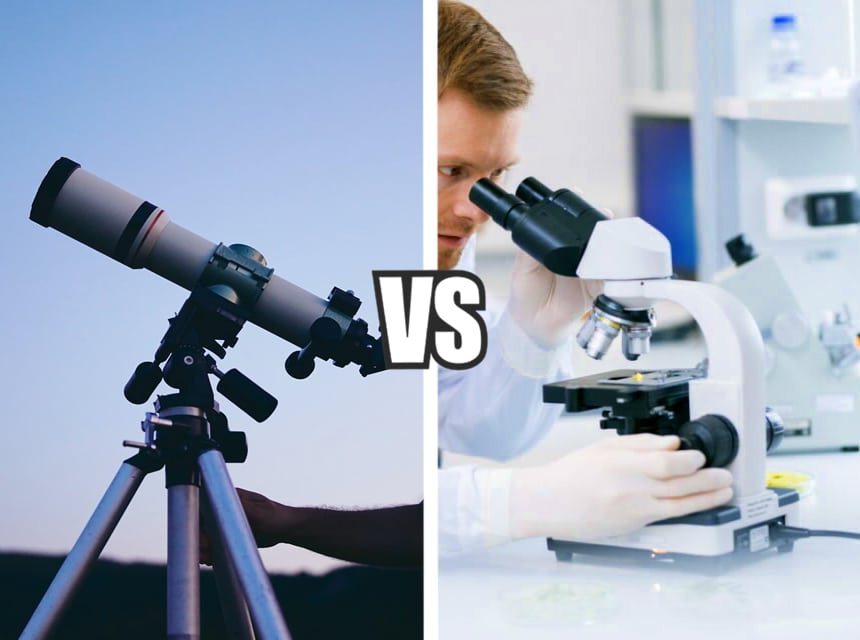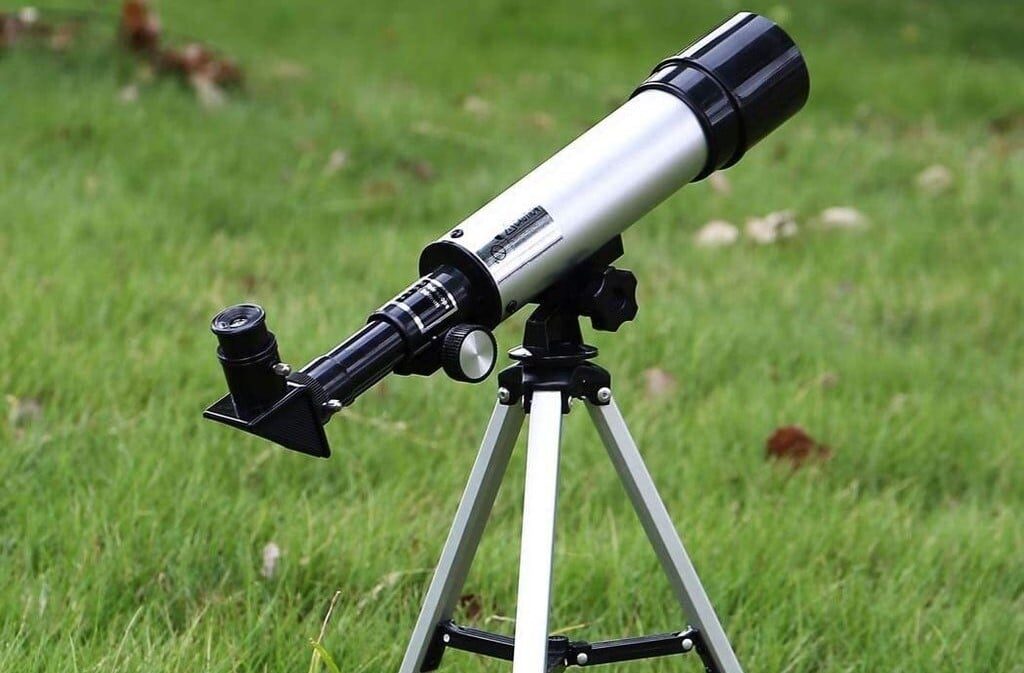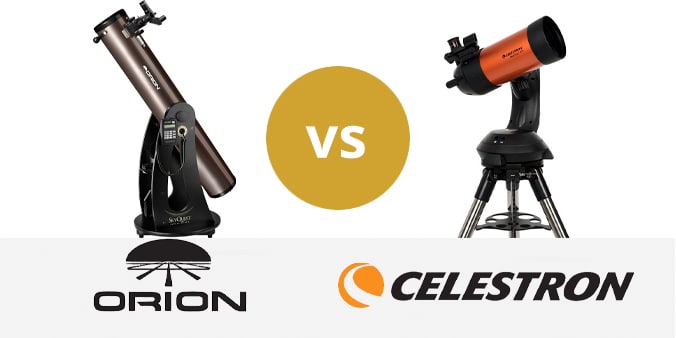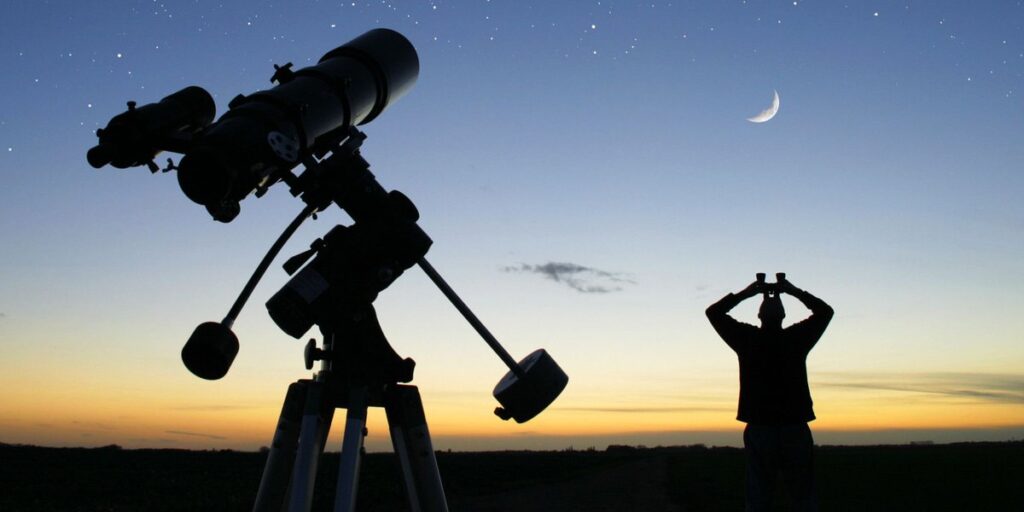

Telescopes can be hard to figure out but one hurdle you might not have anticipated is deciding between a reflector vs refractor telescope.
Putting it simply, reflector telescope, uses mirrors, while refractor telescope uses lenses. Both, however, have the same purpose, which is to explore the skies above us. There are lots of details, both minor and complex, to consider when choosing between the two. We’ll try our best to walk you through the difference between reflector and refractor telescopes so you have a better idea of what is best for your needs.
The biggest takeaway when trying to understand a refractor telescope is that it uses lenses to form an object. You can also find refractor lenses in cameras and spy glasses.
With a refractor telescope, you look through the eyepiece which conducts your gaze down a wide tube. At the other end of the tube is the objective which uses a lens for you to see faraway objects.
With a reflector telescope, images are seen via mirrors. These are curved and they reflect light to form an image. The main reason for crafting this type of telescope is to create objectives that are larger in diameter.
At one end of a reflector telescope there will be an eyepiece to look through. At the other end there is an objective, where the image is centered and along the way is bounced off a mirror to increase its size.
Now that we’re aware of the basics of both
telescopes
Trusted Source
NASA -
Telescope History
In 1609 an Italian physicist and astronomer named Galileo became the first person to point a telescope skyward.
www.nasa.gov
, let’s compare them in different categories.
If you are just getting into astronomy, you will probably want to keep your costs low and in this manner, a reflector telescope will be the more economical option. You can even find reflector telescopes under $200. Prices can vary, though, even with reflector telescopes. For example, the Meade LX85 is a quality option that comes in just over $400.
While refractor telescopes are more expensive, there is still a variety of prices that should meet most budgets. The Celestron AstroMaster 90 AZ is one example of a refractor telescope that can be bought for under $300.
Winner: reflector telescopes
Are you content with gazing at the moon or do you want to far-off galaxies? A refractor telescope is used to view the moon and close planets such as Venus and Mercury. With a reflector telescope, you can peer farther into the universe and see galaxies.
As you may have guesses, refractor telescopes are more common as they use less sophisticated technology and are also less expensive, which we’ll get into later.
There’s no right or wrong reason for getting a telescope, so we can’t really judge which one is better. The bottom line is to get a telescope that meets your needs.
Winner: tie
The diameter of a reflector’s objective, the area where light enters, is larger than a refractor’s objective. The more light, the larger the object can be seen.
However, a refractor telescope has better contrast and sharpness with its objects while more advanced astronomers may be disappointed in the optical quality of a reflector telescope.
Winner: tie
After spending some solid money on your telescope, sometimes upwards of $1,000, you want to keep it well maintained. This is a lot easier with a refractor telescope. Its parts are in a closed system, meaning they aren’t exposed to the elements.
In contrast, a reflector telescope has an open system and the mirrors come into contact with dust and humidity. You will need to be vigilant about cleaning and storing your reflector telescope.
Winner: refractor telescopes
Portability isn’t just about size and weight with telescopes. It’s also about collimation, which includes aligning all the parts of your telescope. With a refractor telescope, you can move your telescope around and not have to worry about collimation each time, which makes this type much more portable.
Winner: refractor telescopes
There is a new movement of astronomers who want to use their telescopes to take pictures of the sky. For this to happen, you need a telescope that will provide clear, crisp images.
A refractor telescope is prone to chromatic aberration, where an object looks blurry and the colors are fringed. You can still make out what you are seeing, but it is definitely distorted. You can try to fix this issue but you may need to upgrade your gear.
A reflector telescope may be the better option here as it doesn’t have this issue. However, it won’t be able to see as far away, so you won’t get those mesmerizing galaxy pictures you want.
Winner: reflector telescopes
There are no shortage of accessories for either a refractor telescope or a reflector telescope. Both will need tripods so that you can set up your telescope on a level area and not have to worry about anything bouncing around.
You can play around with different lenses and magnification abilities and of course, you should purchase a cover to keep your telescope dust-free when not in use.
Finally, with either telescope you can benefit from downloading an astronomy app to your phone. You can research constellations, see when certain planets will be visible, and track your discoveries.
Winner: tie
Are you still excited to see what’s out there? After the pandemic and the global lockdown, many people were stuck at home and naturally took to gazing at the sky Trusted Source Why Millions Of Us Looked Up In Lockdown And Got Hooked On The Night Sky There are no stressed-out stargazers. Last year’s breakout hobby continues to be popular, with sales of telescopes up and events like last week’s total lunar eclipse stoking the fires. www.forbes.com , hoping for an answer to all our problems. A telescope can help you discover more of the universe. A refractor telescope is seen more as a beginner model, as it is less expensive. It uses a lens to magnify objects and is great if you want to observe the moon or close planets. Those with a larger budget may want to consider a reflector telescope. This model uses a mirror to increase the image’s size and is powerful enough to see faraway galaxies.





